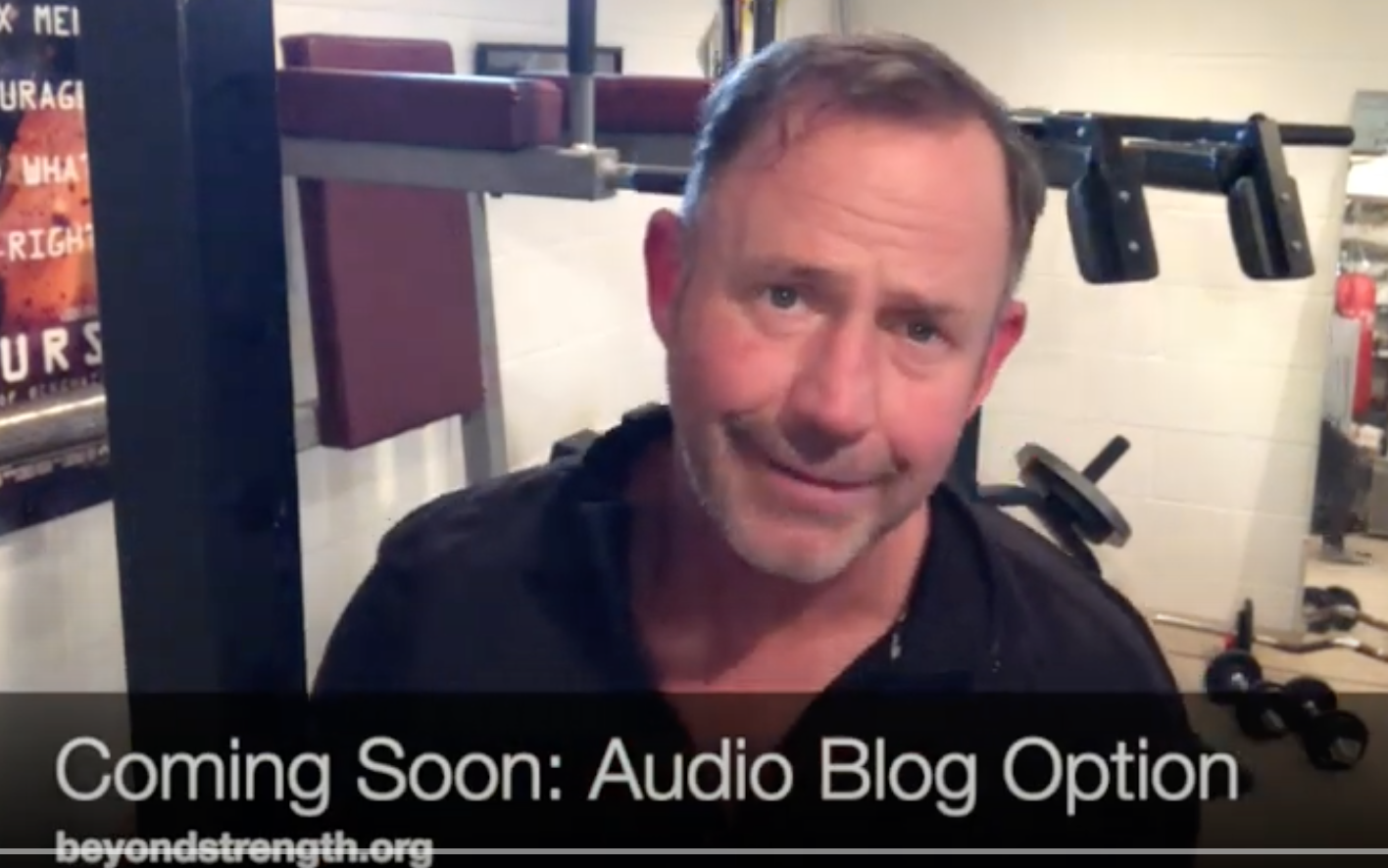

Happy Halloween!


Leading with courage, strength, humility and respect.


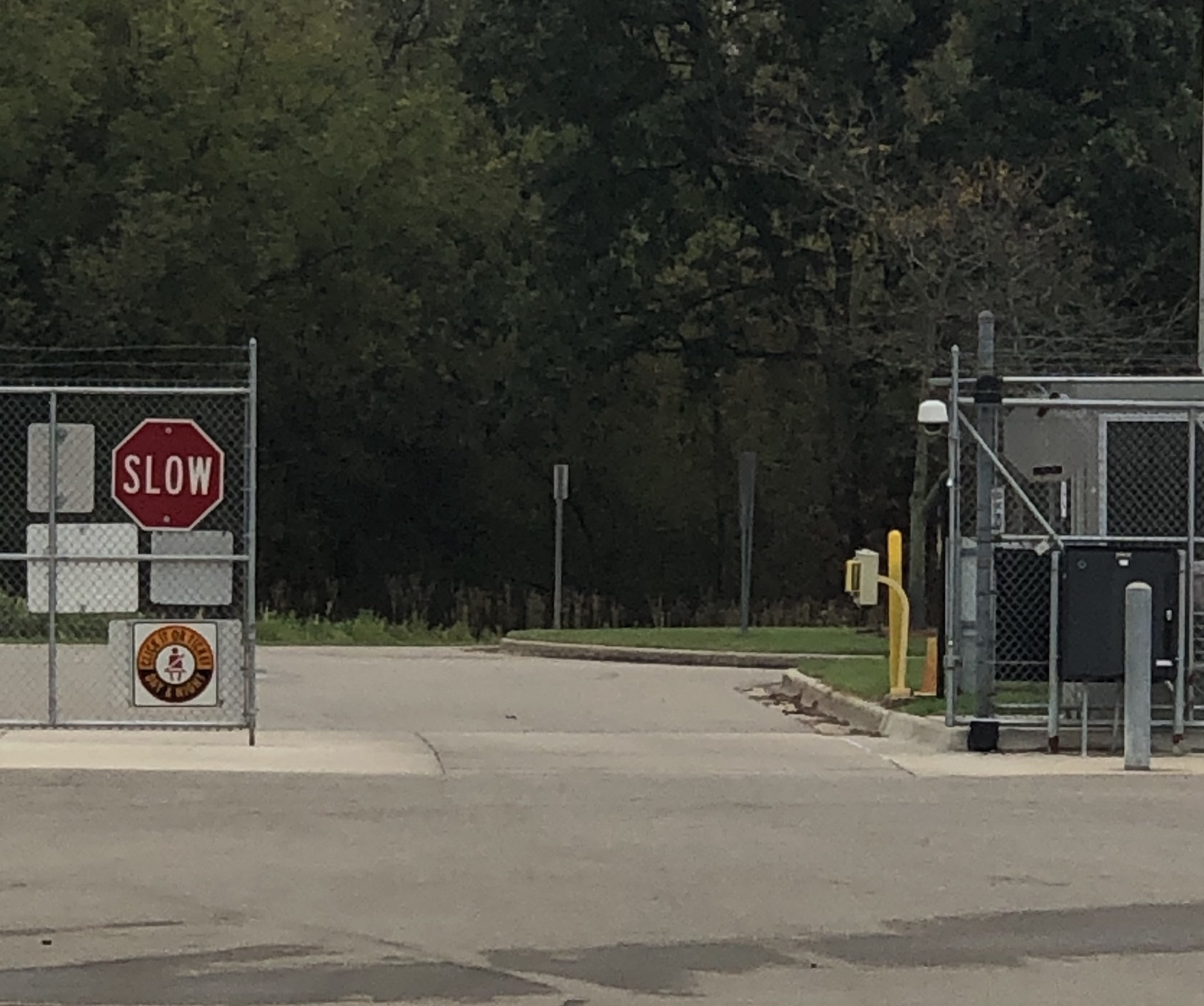
A few weeks ago I was having another day like every other day, week, and month: over-committed, behind schedule, scrambling from obligation to obligation, place to place, event to event. Like many other days, I had to squeeze in a stop at vehicle services. As usual, Bruce was there at the gate shack under his signature flat cap. No doubt retired and working to stay busy, this dude is old-school cool.
Bruce has seen me roll through dozens of times. And while he’s often quick to compliment my tie or choice of suit, sometimes he delivers a nugget of wisdom that only someone who’s been around a while can.
On this day, he picked up on something that prompted him to ask, “How things been treating you? Busy?” I’m certain he had me figured out long ago as just another over-tasked lunatic trying to keep an impossible schedule.
I told him I was busier than I wish, but things could always be worse. Enter the wisdom of Bruce.
“You know what you gotta do, don’t you?”
“What’s that?” I ask.
“Just slow down. Trust me, it’ll still get done…you’ll still get there.”
It’s interesting, if not uncanny, that I happen to be reading a book by Eric Weiner called ‘The Socrates Express’. It’s Weiner’s compilation of life lessons from his study of various philosophers. Throughout the text, philosophers and philosophy itself seem to be telling us to slow down. In fact, Weiner suggests perhaps it would be better for us to greet one another by saying “Take your time” or “Slow down.” instead of more traditional greetings. He says by doing this often enough, “…we might actually decelerate.”
Maybe Bruce read the same book.
While it’s true that patience is a fruit of the spirit and applies in many contexts, it certainly plays large into slowing down – especially when considered in relation to other spiritual fruits like love, gentleness, and self-control. A fair amount of research links patience with healthier, happier people who are more rational and resilient, too.
Slowing down also makes us better listeners. I know, because I can be a terrible listener, especially when I’m in a hurry. I hate that about myself, and Bruce’s timely advice pierced right to the heart of the issue.
But speed is relative, and like other life skills, one must find proper balance. Take for instance recent events of a return trip from Florida. Where taking things slow, combined with an unpleasant desk clerk and an unreasonable supervisor, resulted in one-third of our party unable to make the same flight as the other two-thirds. Add in a necessary car-key exchange, boarding door closure imminent, holder of said key on the wrong side of security, and an ill-timed ‘random security screening’ ordered while trying to get said key to the other side, and it’s a small miracle I am not on a watch list somewhere.

Deep, cleansing breath.
A week after sharing the video preview of this article, I was camping in northern Michigan and posted a picture of my deceleration efforts. I captioned it “Slowing down takes time.” I don’t know if that’s considered a double entendre, zeugma, syllepsis, or what..but it is both literally and figuratively true. I admire people who have mastered the art of chill…but I’m not so good at it.
This is not a unique problem. Country superstar band Alabama once recorded a song I could sing in my head every day and it would be true each time: ‘I’m in a Hurry (And Don’t Know Why)’. The chorus repeats the all-too-blatant main point:
I’m in a hurry to get things done
Oh, I rush and rush until life’s no fun
All I really gotta do is live and die
But I’m in a hurry and don’t know why
It sounds like a children’s book.
Like a child, I have a low threshold for boredom. I also have trouble saying “No” and many things that interest me. So I take on more than I should. Then I have too much to do in too little time. So I’m rushed. And maybe I’m afraid of NOT being busy because I know my mind’s tendency to wander. Not just toward less-than-wholesome contemplations, but to things I have seen, done, and experienced I don’t want to go back to.
After leaving Bruce, I put his advice to work. I drove slower back to my office. I took time to look around. When I started the long walk to the building, I was speed-walking, as usual. I breathed deeper and purposefully slowed my gait, instantly feeling the perpetual tension in my body release. I sought to maintain that peaceful, easy feeling the rest of the day.
It didn’t last long, but it was progress. And I am more aware now when I am rushing unnecessarily, and try harder to avoid spinning out of control.
Especially when TSA is about to flip the ‘randomly check this dude every time he travels’ switch.
Slow down and take it easy. And while you’re at it, keep doing great things!
Get Strong. Be Strong. Stay Strong.
I’m in a Hurry (And Don’t Know Why) lyrics © Reservoir 416, Murrah Music Corp. Songwriters: Roger Murrah / Randy Van Warmer. Source: Musixmatch
Weiner, Eric (2020). The socrates express. New York, NY: Avid Reader Press.
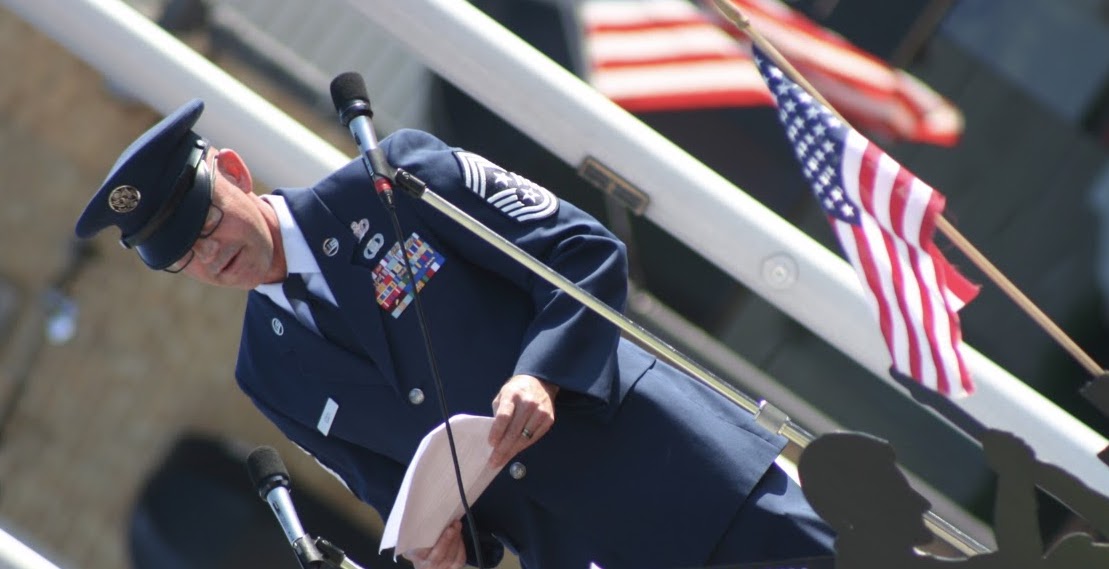
I am set to speak at a remembrance event this weekend to mark the 20th anniversary of the attacks of September 11th, pay homage to those lost, and esteem the military and first responders whose lives have been forever changed.
A reporter advancing the event asked me to share my perspective about the withdrawal from Afghanistan. Taking the high road, I exercised appropriate restraint and diplomacy in my response. With the door of communication open, he also asked me to sidebar some recollections from the morning of the attacks.
This is what I shared.
My day job was in public safety assigned to an investigative unit. At the time, I was also serving a parallel career in a national guard security forces unit. It turns out this was a not-so-uncommon convergence of careers, both of which were significantly impacted by the events that day.
I was working at my office that morning. Not quite Brooklyn Nine-Nine, the space was nonetheless a standard maze of cubicles. Televisions broadcast multiple networks to keep analysts and detectives abreast of emerging local and national events.
The news broke. The office fell silent as people drifted trance-like closer to the televisions. Shock and disbelief permeated the office as we watched replays of the first plane impacting the World Trade Center. A lack of productivity, and the promise of a larger screen, pushed me and my partners to one’s nearby house to continue watching the events unfold.
Like many others, I suspect the peaceful, clear blue sky and sunshine that morning so vividly contrasted the atrocity we were witnessing that it was difficult at first to reconcile what was happening. In fact, I recall thinking to myself after seeing the first plane impact the building, ‘How the hell did a passenger plane accidentally hit a skyscraper?’
Obviously when a second plane hit the other tower there was no doubt what was happening…further confirmed when the Pentagon was struck, and then reports that a fourth plane went down in rural Pennsylvania.
Within minutes of realizing it was an attack, I was on the phone with my military unit. I would spend the rest of that day and many that followed on and off the phone with my unit, civilian commanders, loved ones, and friends, all the while knowing that an attack on the homeland no doubt meant a return to active duty.
Like many others, I was overwhelmed with feelings of anger, disbelief, frustration, confusion, patriotism. And a growing thirst for vengeance.
While it wasn’t a huge stretch leaving one profession of arms to go back to another, it wasn’t without challenge. But first responders are just wired differently; they rush in while others are running out. Which probably speaks to why some of us aren’t quite right. It’s in our nature and our training.

No where is that pithy maxim more evident than reading the hundreds of names of first responders on the 9/11 memorial at Ground Zero lost ‘rushing in’ that day.
Or stepping into nearby O’Hara’s Pub to feel a spirit you’re not likely to forget. Ask to take a look at ‘the book’ while you’re there.
I recall one of the challenges for me was the impending birth of our daughter. She would be born less than two weeks after the attacks, and I would be back on active duty two weeks later. I would remain on orders nearly two years under the Presidential Partial Mobilization. Fortunately, while a fair amount of travel, long hours, and uncertainty was involved, the majority of that initial tour was stateside, protecting the homeland.
That wasn’t the case for everyone.
At that time I had spent about 15 years in the military between active duty and national guard. There was never any doubt as to relevance or responsibilities when I was on active duty. That was not necessarily the case once I transitioned to the national guard. But the attacks of September 11th not only opened the eyes of the United States in a way they hadn’t since Pearl Harbor, it also awakened the ‘sleeping giant’ that was arguably the posture of the national guard, outside humanitarian relief and disaster response, for at least a couple of decades prior. ‘Weekend warriors’ we were called…for good reason.
But it was time to rush in.
I would serve a total of nearly four additional years of active duty on and off following 9/11, including a tour in Iraq, regular trips to Washington, DC, and short-term visits with troops in the Middle East and other places around the world.
Neither military nor civilian career was ever the same as a result. And like many of you, I’m not the same, either.
As predicted, what was supposed to be just a few lines of remembrance turned into much more than my reporter friend asked for. But for what it’s worth, it ended up equal parts catharsis and speech-writing (for the event mentioned above). And I’m grateful for the opportunity.

Never forget…
Get Strong. Be Strong. Stay Strong.
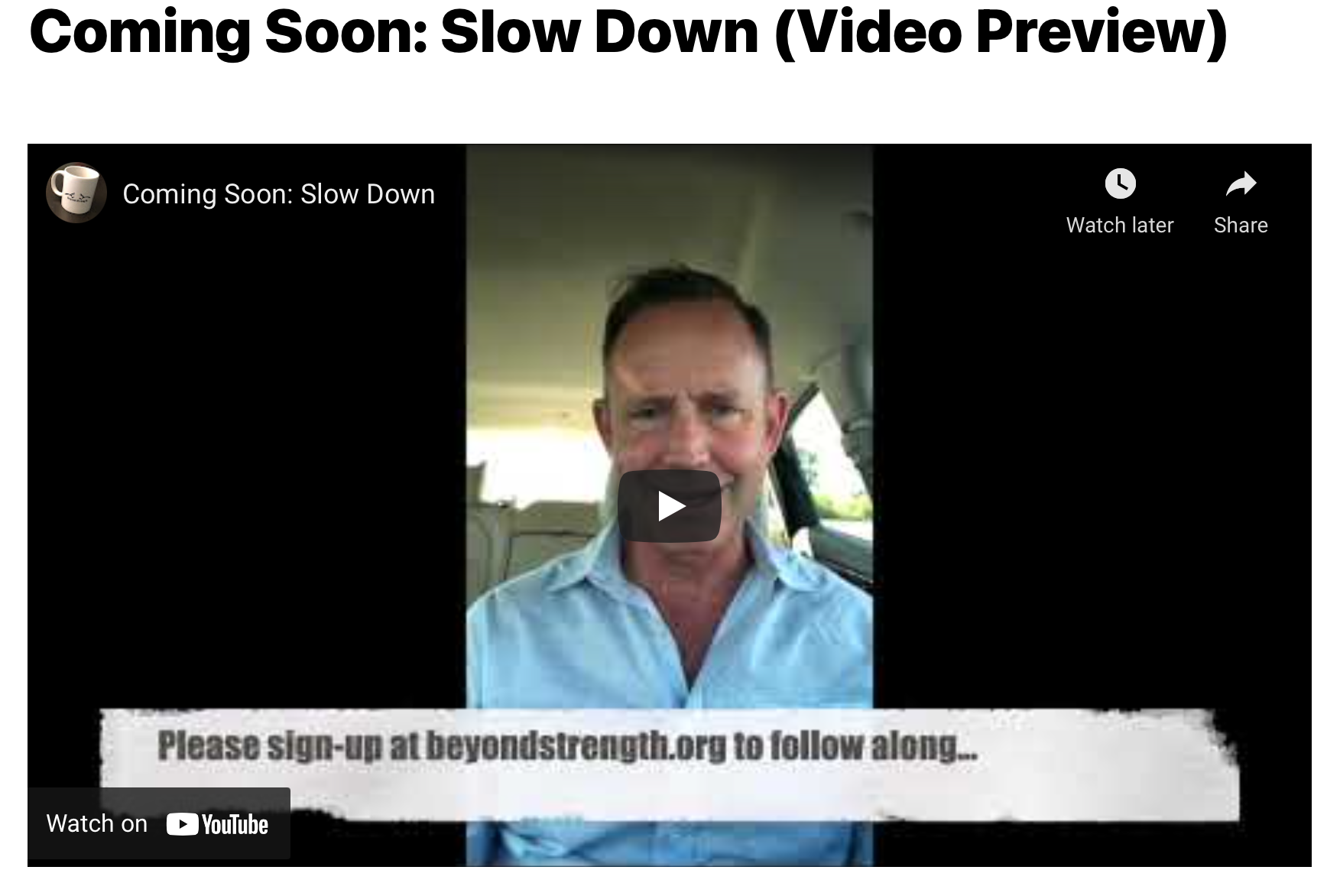
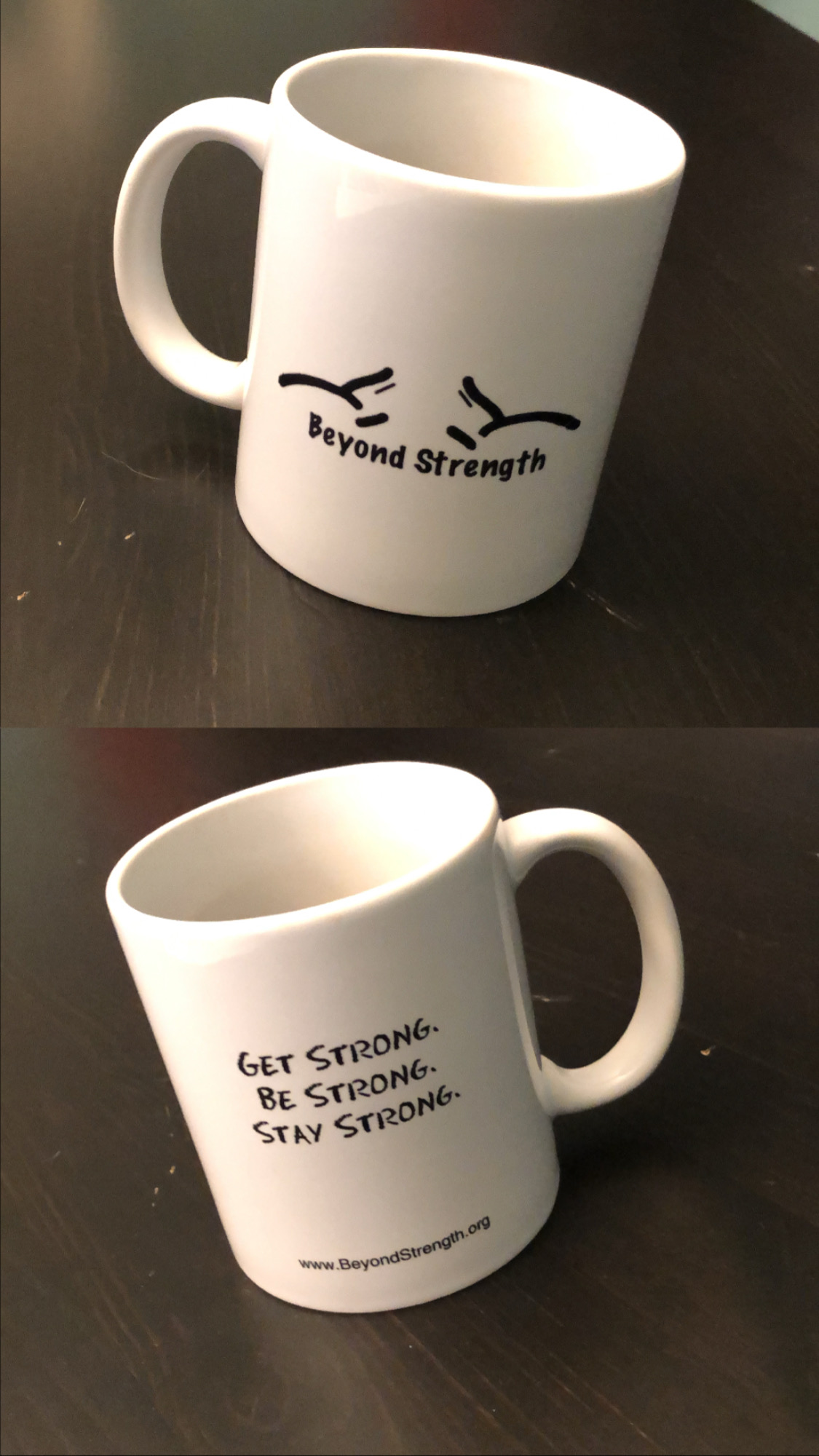
Do you remember ‘Head, Shoulders, Knees and Toes‘? Details are a bit sketchy as to origin, but it seems most commonly associated with Sesame Street in recent history. Considering my advanced years, vague recollections of doing the song and dance as a youngster, and leading my children and other church kids in this whimsical time-killer, I’m certain its roots are long ago.
There isn’t much doubt this nursery-rhyme-variety, body-part-identifying dance revolution has been used countless times to help little ones burn off energy, distract, entertain, and teach where their head, shoulders, knees, toes, eyes, ears, mouth, and nose are located.
I now find myself wondering if this romper-room cavorting is a fun way to teach basic anatomy, or really a song about getting old?
Of the 90 or so articles I’ve published, I’m sure I’ve discussed all these people-parts in the context of aging or related to life, leadership, and fitness in some other way. But let me bottom-line some jagged points here that come to mind for each that perhaps people of all ages can take from the unintentional swipe this kids song takes at my aging, aching, trichotomy of weakness (body, mind, spirit).
Head: migraines, vertigo, male pattern baldness, thought life, insecurity, self-esteem, vanity, trouble focusing, inevitable senility.
Shoulders: shouldering my share of the work, vaccination scars (from a time there was much less controversy about getting one), proper development of, proper care for, arthritis from injury and overuse, physical therapy, inevitable surgery, and of course the Beyond Strength logo.
Knees: knobby, achy, creaky, crackly, scrapes, scars. But most of all, a need to spend more time on them in prayer and apology.
Toes: part of our feet, which should be going into all the world and making it a better place. I’m thankful to have reasonably presentable paws, but not everyone does. Some old-timers’ hooves show (and feel) the wear and tear of a lifetime spent clomping around on them. Take care of your feet (and your toes); they will thank you for it. Others will also appreciate it, especially if you’re one to wear sandals or go barefoot.
Eyes: itchy, watery, bloodshot, bags under, astigmatism, inevitable need for ‘readers’. Most importantly, their connection to thought life. Consider this, for one…”If your right eye causes you to stumble, gouge it out and throw it away.” (Matt. 5.29). Read the verse prior for context. On the plus side for a guy like me, the obvious brutality of the phrase surely excludes its literal translation. But the implication is clear. Look, God created countless beautiful things, women among the loveliest in my opinion. But don’t dwell. Appreciate their beauty and move on. Easier said than done…trust me, I know.
Ears: eavesdropping, protruding, ringing, diminished hearing, gravity and time’s lengthening effect, propensity to listen to or repeat the wrong things. Can you hear me now?
Mouth: see above. The mouth is one of the harshest and most weaponized of physical features. Once uttered, words can’t be undone. The mouth can equally affirm or destroy. Take it from someone who has been unfortunately good at both. Use yours wisely, kindly, lovingly.
Nose: first and worst is failure to recognize one’s own stench. Allergies, reddening, gravity and time’s lengthening effect, obvious target for blemishes, acne, and carcinoma. Beware digging for gold, especially when sitting in traffic.
I don’t think this made as much sense here as in my head when contemplating this article. But here’s the thing…we can learn a lot from what we did as kids. Age, experience, responsibilities, stress, the effects of aging, seeing what we do and are capable of when left to our own devices, and adulting in general can be depressing or overwhelming.
Use this as a motivator to do some things to improve your physical, spiritual, emotional, psychological, and social well-being. Even if it means running through the motions of Head, Shoulders, Knees and Toes a couple times.
It’s also good to remember old Sunday school songs like ‘O Be Careful Little Eyes’ or its more recent and powerful mashup ‘Slow Fade’ by Casting Crowns. Considering my own shortcomings and tendencies highlighted above, I should probably just play this on repeat. All day.
Be careful little eyes what you see
It’s the second glance that ties your hands
As darkness pulls the strings
Be careful little feet where you go
For it’s the little feet behind you
That are sure to follow
Be careful little ears what you hear
When flattery leads to compromise
The end is always near
Be careful little lips what you say
For empty words and promises
Lead broken hearts astray
The journey from your mind to your hands
Is shorter than you’re thinkin’
Be careful if you think you stand
You just might be sinkin’
It’s a slow fade
When you give yourself away
It’s a slow fade
When black and white have turned to gray
And thoughts invade, choices made
A price will be paid
When you give yourself away
People never crumble in a day
People never crumble in a day
Daddies never crumble in a day
Families never crumble in a day
Oh, be careful little eyes what you see
Oh, be careful little eyes what you see
For the Father up above is looking down in love
Oh, be careful little eyes what you see
Source: Musixmatch. Songwriters: John Mark Mark Hall
Slow Fade lyrics © Sony/atv Tree Publishing, My Refuge Music
(Some repeat choruses omitted for brevity)
Get Strong. Be Strong. Stay Strong.

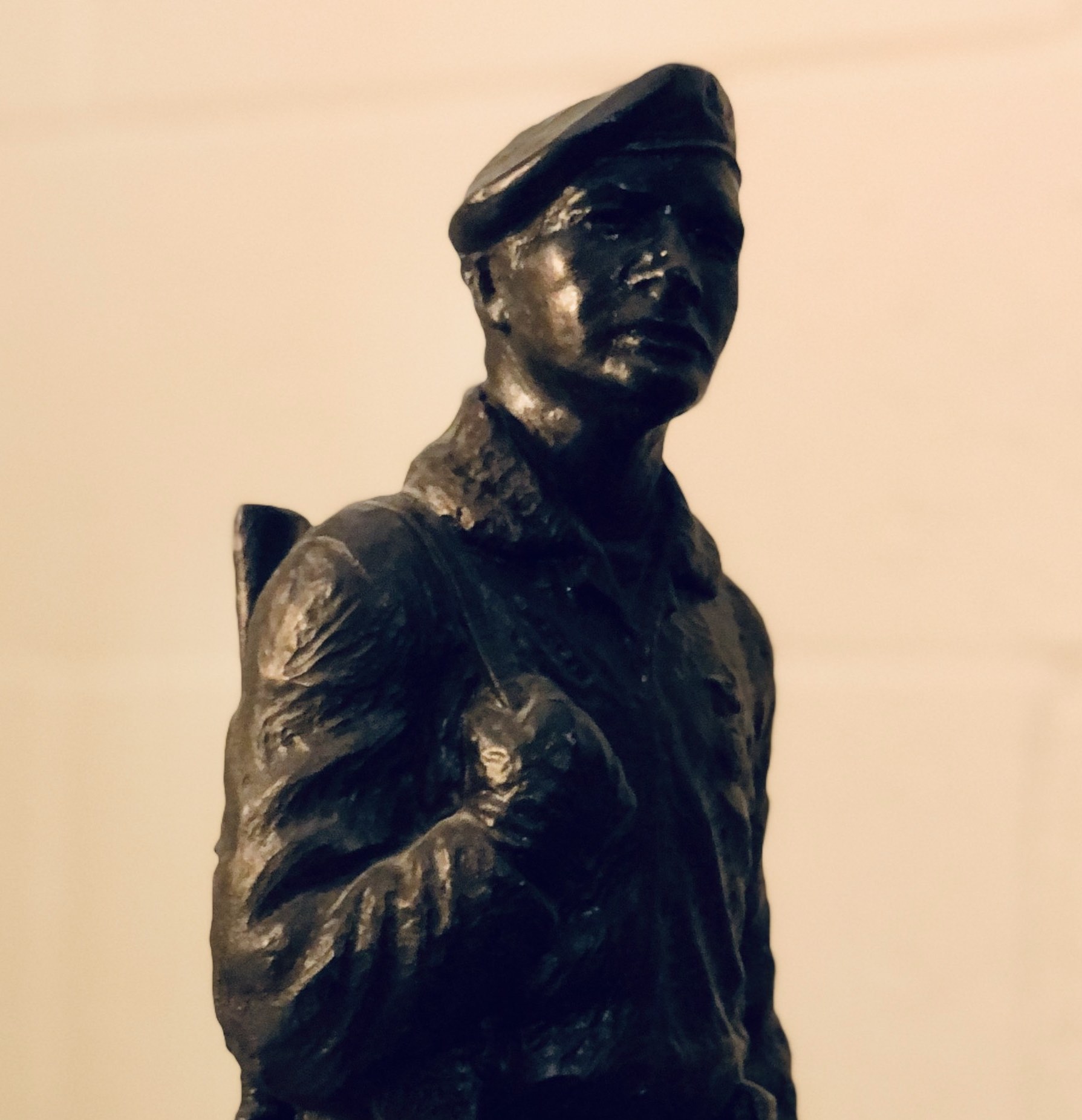
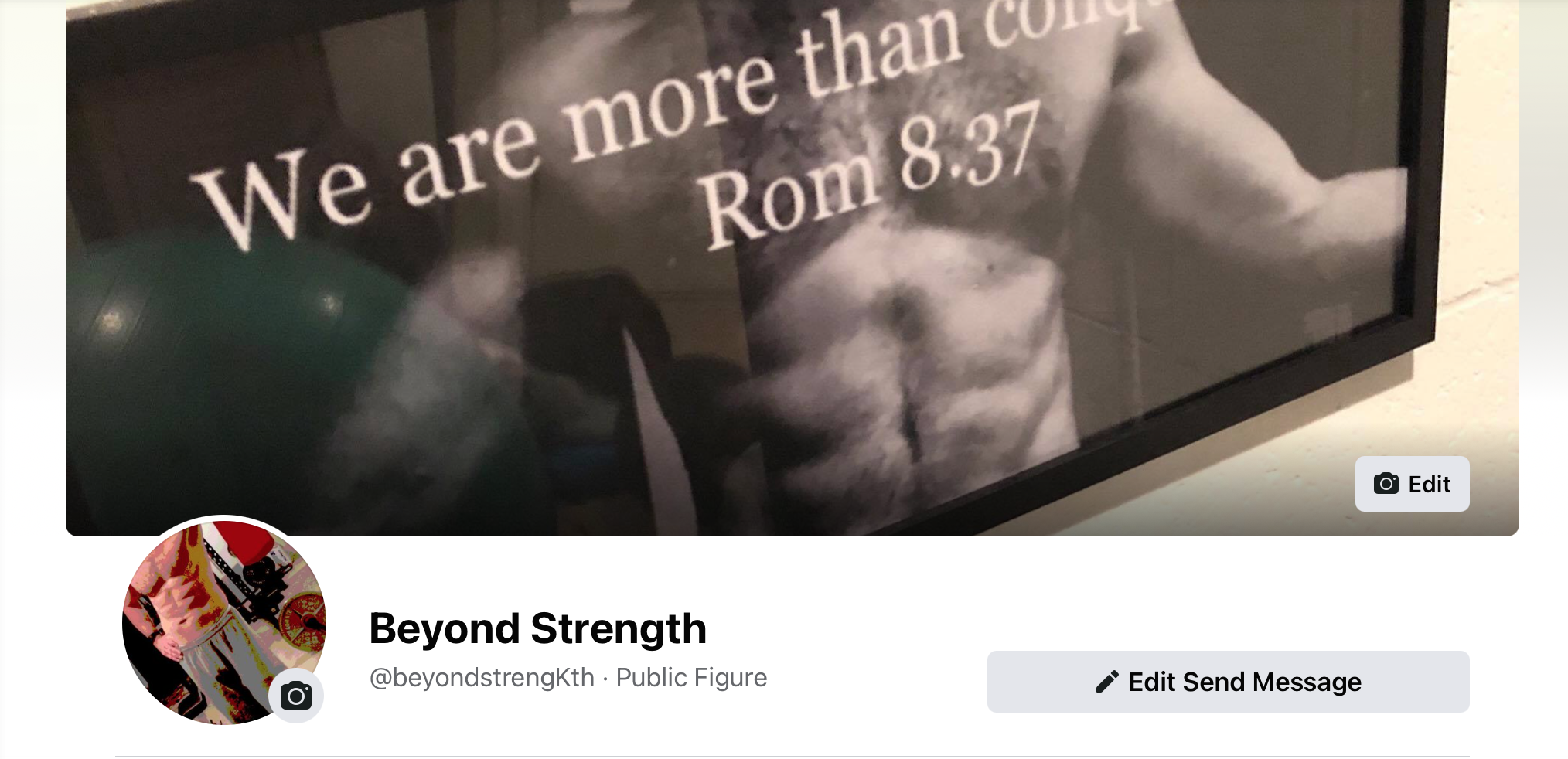
Before cell phones and social media, kids were known to write notes. In the case of that special crush, they might agonize over how to best communicate the proper level of adoration to the one they’d been spying in the lunchroom or on the playground. More often than not determining the title of this article was the best way forward, they would scribble the words on a piece of paper, fold it just right, and pass it to the love of their life through a trusted friend (who probably wished the note was for them).
The wrong answer was devastating.
Recently, a number of my friends, family, and colleagues have (again) sworn off social media. I can’t blame them. Typically their reasons for going dark involve too much drama or politics, unwanted opinions, or a lack of respect from loud-mouths with opinions contrary to theirs. I tend to ignore the nonsense and avoid being dragged down into it. Not that I don’t sometimes want to tee off on that ridiculousness, but I know where it will lead: a comment or reply, no matter how sensible, is unlikely to change anyone’s position or opinion on a matter. You can’t reason with the unreasonable. Still, the feelings of validation from ‘likes’ and encouraging comments is powerful.
This isn’t intended to be an essay on social media, but rather commentary on something linked to it that’s beyond my comprehension: social media ‘influencing’. I have yet to crack the code.
While I don’t understand what most ‘social media influencers’ are influencing or educating us on, I understand the draw; the response and number of followers is overwhelmingly linked to feelings of self-worth or self-efficacy. And apparently a lot of money.
Another code I haven’t cracked.


My intent with this venture has never been about money or followers. But one of my goals is to share insights, experiences, encourage, and provide of bit of entertainment to as many people as possible. I’ve linked a few social media accounts to this blog with increased visibility in mind. I appreciate every follower, and I’m particularly grateful for the small group of you who regularly like, comment, and share these articles. But I’d be lying if I said it doesn’t bother me not to have a larger following or get more feedback.
“Those who can, do; those who can’t, teach” is a George Bernard Shaw quote most commonly used in derogatory fashion today. Yet some of the greatest doers are also some of the greatest teachers. I have been blessed to serve with some incredible leaders (some not so much), and have even held a few positions of influence and leadership myself. I’m certainly not ‘all that’ and have had a few missteps along the way, but I try hard to translate that experience, good or bad, into meaningful content. It’s not Pulitzer Prize stuff here, but I like to think it’s not a complete waste of time, either.
So why hasn’t this thing taken off like million-plus follower types The Minimalists (who I researched on how to create a blog) or thought-leaders like Simon Sinek? Or my just-for-fun Rhythm Section’s Guide to Mixology, which got more interaction to its first post than most of my blog posts? And what about the recent trend of widely followed middle-age women whose provocative selfies routinely garner tens-of-thousands of likes and comments? Maybe I need to start posting more of those ‘artistic’ selfies I took when struggling with self-confidence at the prospect of turning 50.


Or maybe I just need better marketing.
Realistically, no matter how important or influential we might think we are (or were) in the moment, people are fickle and most are quickly forgotten. Before retiring from the military, I was a senior leader responsible for thousands of enlisted members and helped direct national-level executive leadership training. Not even three years retired, I am seldom contacted nor do I receive notice of significant ceremonies or events expected by protocol and courtesy.
That hurts.
Today, success is often measured in followers, likes, and comments, so I can’t help doubt myself at times and the relevancy or value of Beyond Strength. And if a picture of me half-naked or a video of an overly made-up teenager telling us her life is over because the espresso machine is out has more impact than real, heartfelt, relevant, and proven life, leadership, and fitness principles shared by someone who’s been there, I may be out of ideas.
I want what I do here to be relevant and useful. I want to make a difference. It would be nice to be liked.
But here’s the thing: as much as I yearn for affirmation, I need to remember my worth doesn’t come from what I do or how many likes I get. And yours doesn’t either.
Our worth comes from God. The God whose son said “If you love me, keep my commandments.” (John 14.15).
The same Son who died on a cross to save us because none of us do.
I want you to like me. But I understand if you don’t.
Sometimes I don’t even like me.
Get Strong. Be Strong. Stay Strong.
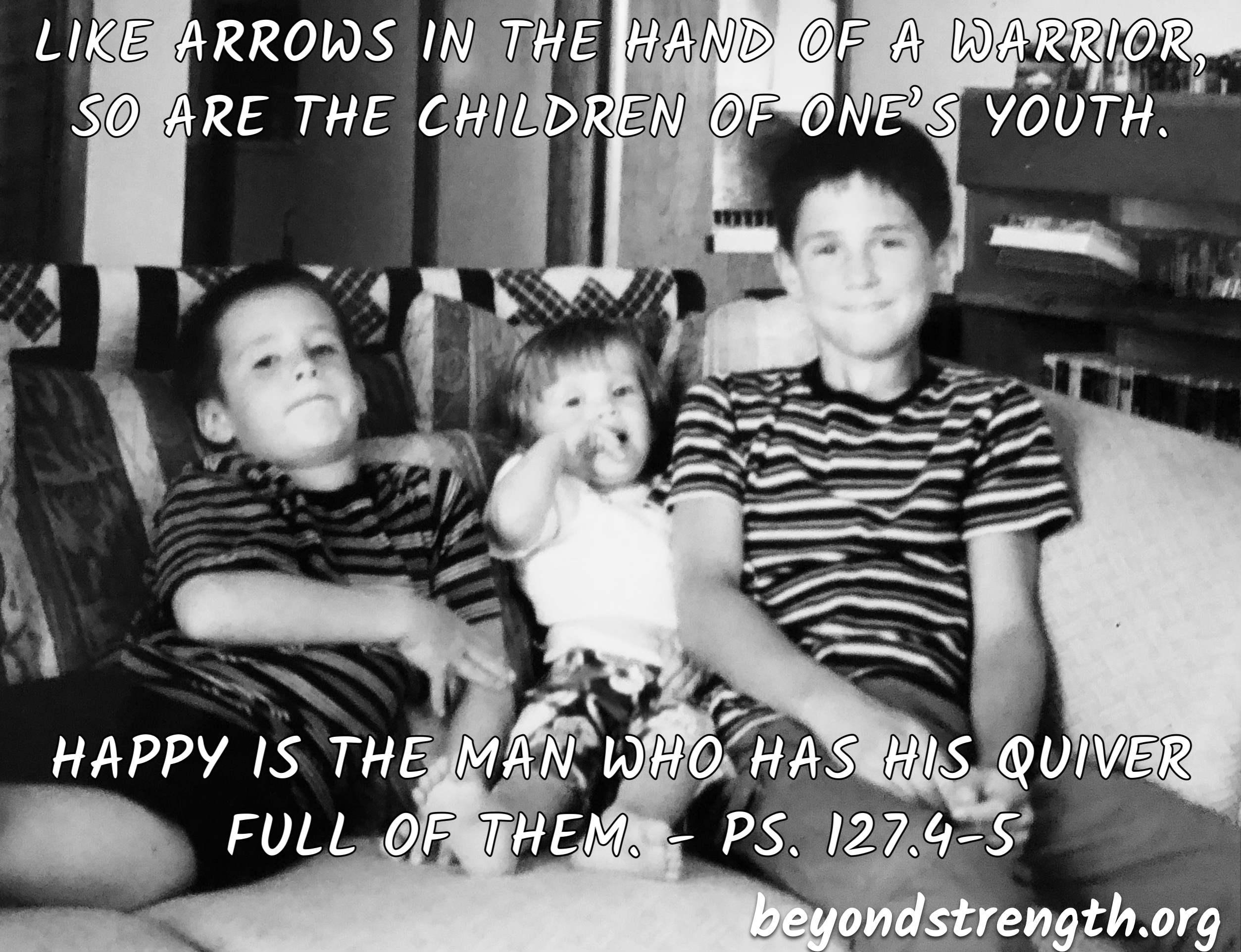

Wishing dads everywhere a very Happy Father’s Day today. Never underestimate the influence of a father (or father figure) in someone’s life.
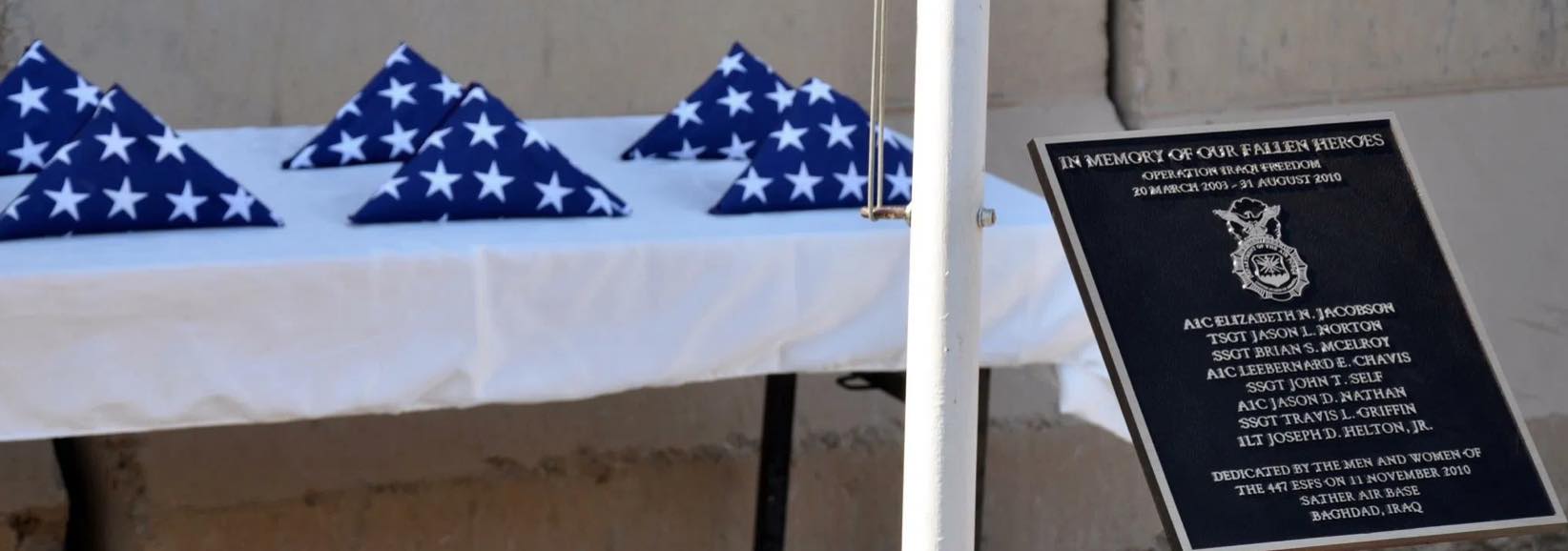
As Memorial Day approaches, I offer this encore presentation of Lest We Forget, originally posted this date in 2018. It is also available by audio at the SoundCloud or YouTube links provided below.
“By this we know love, because he laid down his life for us.” These are the words of the apostle John, written somewhere around A.D. 90. John was referring to Jesus Christ in the first half of that verse, but he goes on in the second half to say, “And we also ought to lay down our lives for the brethren.” (1 John 3:16). The next few verses of that passage articulate what I consider some of the most insightful facts about love ever documented, the bottom line of which is this: genuine love ALWAYS results in action…not just sentimental words. Memorial Day is a holiday through which we rightfully pause to remember the actions resulting in ultimate sacrifice by those defending freedom.
Since 1775, more than a million American service members have died in wars and conflicts to preserve the freedoms we hold dear, fighting for our independence. They helped create the world we live in and paved the long road of democracy we continue walking today. We all owe them our gratitude for the freedom to live, work, play, express our faith, and raise our families. I’m especially mindful today of those thousands of brave sons and daughters who paid the ultimate sacrifice fighting our nation’s wars…who died while preserving our way of life.
These men and women were some of America’s best and brightest. They gave their lives on the blood-soaked beaches of Normandy, in the jungles of the South Pacific, and over the skies of Nazi Germany and Imperial Japan. They fought and died on the icy slopes of the Korean Peninsula and in the rice paddies of Vietnam. More recently, they have fought and fallen in the mountains of Afghanistan and in the deadly streets of Iraq. Only those who have seen the horrors of war firsthand can ever truly know what these Soldiers, Sailors, Airmen and Marines may have gone through in their final moments.
“…I think of all those guys killed in action, wounded in action, and their friends, their relatives and all those altered lives. How could I forget? It’s not so much what we went through as it is knowing what the other guys went through. They died dirty. They died hot, hungry and exhausted. They died thinking that their loved ones would never know how they died.” Clinton Poley, 2nd Platoon, Charlie Company, 1st Battalion, 7th Cavalry in the Ia Drang – as written in Lt. Gen. Harold G. Moore’s book We Were Soldiers Once…And Young.
Even though the technology of war has changed dramatically since the American Civil War, the risks and suffering has not. For brave Americans who bear that risk, no victory is free from sorrow. This nation’s men and women fight proudly, but we likewise know the price and weigh the cost each time we see another flag-draped coffin carrying the remains of another fallen hero home. I can tell you that having been there on the other end as some of those heroes began their journey back to the U.S., the loss is real…tangible…and tragic to those grieving, on both sides of the ocean.
It is humbling, and comforting, to realize that despite the known dangers, increased operations tempo, and unconventional enemy we now face, every member of the all-volunteer armed forces serving today has either enlisted or re-enlisted since September 11, 2001. And as of 2013, more than half of those serving were seasoned combat veterans.
“We few, we happy few, we band of brothers; For he to-day that sheds his blood with me shall be my brother;” – Shakespeare, Henry V, Act IV, Scene 3.
Those who have known combat make me think of the words from the Man in the Arena portion of Theodore Roosevelt’s ‘Citizenship in a Republic’ speech: “It is not the critic who counts; not the man who points out how the strong man stumbles, or where the doer of deeds could have done them better. The credit belongs to the man who is actually in the arena, whose face is marred by dust and sweat and blood; who strives valiantly; who errs, who comes short again and again, because there is no effort without error and shortcoming; but who does actually strive to do the deeds; who knows great enthusiasm, the great devotions; who spends himself in a worthy cause; who at best knows in the end the triumph of high achievement, and who at worst, if he fails, at least fails while daring greatly, so that his place shall never be with those cold and timid souls who know neither victory nor defeat.”
America’s military has defended her throughout history with courage and honor. Our service members raised their right and swore an oath, knowing what they had to do and what that cost might be…the shedding of blood. Perhaps their own. They are humble servants, serving something greater than themselves. Remember the fallen…today and every day.
Get Strong. Be Strong. Stay Strong.
If you have an extra few minutes, I encourage you to watch this video about Air Force Pararescueman William Pitsenbarger, killed in action in Vietnam, April 1966. Video courtesy of the United States Air Force. http://www.airman.af.mil/HeritageToday/videoid/492074/dvpcc/false/#DVIDSVideoPlayer33885
I also encourage you to learn more about the high price Americans have paid in service to the nation by exploring the following link: https://www.va.gov/opa/publications/factsheets/fs_americas_wars.pdf
Some of the above is taken from speeches I have given at Memorial Day events, with some of that content originally derived from military Public Affairs Office talking points provided for consistent messaging by those speaking in an official capacity.
Man in the Arena quote retrieved from: https://www.leadershipnow.com/leadingblog/2010/04/theodore_roosevelts_the_man_in.html
Shakespeare quote retrieved from: http://shakespeare.mit.edu/henryv/henryv.4.3.html
